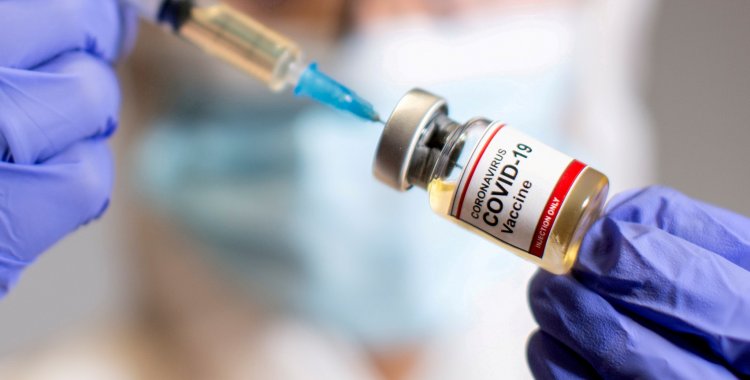India, dubbed the "pharmacy of the world", announced last week that it will reduce the expected volume of exports of the Oxford-AstraZeneca vaccine, produced by the Indian Serum Institute, because it must prioritize a new internal wave of infections.
Oxford-AstraZeneca vaccines are the "backbone" of the immunization campaign in Africa, according to John Nkengasong, the director of Africa CDC, speaking at the organization's weekly press conference in digital format from the African Union headquarters ( AU) in Addis Ababa, Ethiopia.
The Serum Institute of India produces AstraZeneca vaccines that are being sent to Africa through the international Covax initiative, which guarantees access to vaccines to low- and middle-income countries. At least 28 of the 55 AU member states have so far received more than 16 million doses through Covax.
"If these deliveries are also postponed, it is unlikely that we will be able to achieve our goals," said Nkengasong. The target set by the AU is to vaccinate about 30 percent of the population in its 55 member states by the end of 2021.
"If the delay continues - and I really want to expect it to be a delay and not a moratorium, because it would be catastrophic if it did - then compliance with our vaccination schedule will become problematic, very, very problematic," he added. .
Covax has faced delays related to limiting supply globally, as well as logistical issues. That is why some countries like South Africa, the hardest hit African nation, are also looking for anti-covid-19 vaccines through bilateral agreements and through the African Union's wholesale purchasing program.
Africa, with around 1.3 billion inhabitants, expects to vaccinate 60 percent of its population by the end of 2022, in order to achieve group immunity. This objective will almost certainly not be achieved without the widespread use of the AstraZeneca vaccine, which is seen as central to the global strategy to eradicate the coronavirus pandemic.
The vaccine from the Anglo-Swedish manufacturer of medicines is cheaper and easier to store than others and will constitute almost all of the doses sent in the first half of the year through Covax.
Experts have warned that until vaccination rates are high worldwide, the virus will remain a global threat.
Earlier this week, Johnson & Johnson announced that it will supply up to 400 million doses of its vaccine to African countries, but first shipments are not expected before the third quarter of 2021.
African countries have so far received more than 29.1 million doses of vaccines and administered 10.3 million doses, giving priority to health professionals, the elderly and people with associated conditions, said Nkengasong.
Some African countries are currently experiencing strong resurgences of the pandemic, such as Kenya, which experienced an average weekly increase of 53 percent in cases of infection during the month that ended.
In Kenya, the vaccination campaign has been chaotic, fueled, in particular, by a high level of distrust among health workers.
Some vaccination centers have run out of doses, partly because many people who do not belong to the priority categories are receiving the vaccine.
On the other hand, the Russian vaccine Sputnik V is also being sold in private clinics for about $ 70 for two doses.
Nkengasong also expressed concern about a new highly mutant variant, recently detected in Angola among people who had traveled from Tanzania.
After the death of Tanzanian President John Magufuli, Africa CDC officials are "using multiple channels" to work with the administration of his successor, Samia Suluhu Hassan, the official said.
The appearance of the Tanzanian variant led Mozambique to "mount an intensive surveillance strategy" to detect the eventual entry into the country of this mutation of the SARS-CoV-2 virus, according to virologist Nália Ismael, of the Mozambican National Institute of Health, in a seminar this Wednesday.
Recently, a new variant with a dozen new mutations compared to the known variants has been described in patients in Angola from Tanzania. These cases deserve Mozambique's concern, since Tanzania shares a northern border with this Portuguese-speaking country.
"We are going to set up a more intensive genomic surveillance strategy, mainly for samples coming from Cabo Delgado or northern Mozambique, which borders Tanzania," said Nália Ismael.
According to the virologist, "the probability that this variant will enter Mozambique will be from the North" and "the surveillance strategy will be mixed - including the scrutiny of samples from infected patients that will be collected in Cabo Delgado province, and those that collected from any travelers from Tanzania ".







